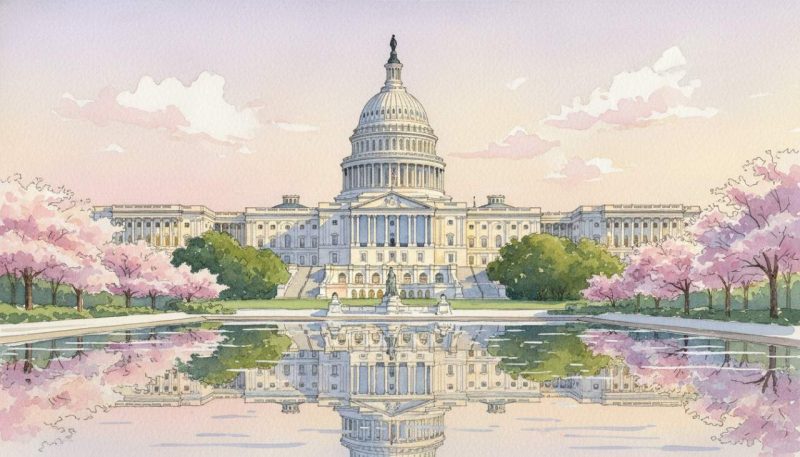Democrats and Republicans are deadlocked on Day 22 of a federal shutdown, and one senator won’t let the chamber pretend this is normal. Jeff Merkley of Oregon has been holding the Senate floor through the night—more than 15 hours and counting—protesting what he calls President Donald Trump’s authoritarian drift and the costs of a political crisis that’s no longer just procedural theater but a stress test of democratic guardrails.

The standoff has stalled yet another vote on a stopgap funding bill and risks real pain for millions of Americans if it stretches into November. That’s the point Merkley is making with time, not just words: democracy requires attention, and attention takes stamina. PBS NewsHour confirm the basic contours—Merkley began at 6:21 p.m. Tuesday and kept the chamber open all night; a protest against “grave threats to democracy.”
A Shutdown That Isn’t About Numbers
Republicans are pressing for a clean reopening; Democrats insist that reopening cannot be detached from the policy context that created the crisis—health care subsidies at risk, executive power wielded as a bludgeon, appropriations used as leverage to entrench unilateral authority. The vote math is familiar: a 60‑vote hurdle, a twelfth try pending, and a chamber increasingly governed by threats rather than deliberation. But the numbers conceal the reality. Shutdowns are no longer bargaining chips; they are governing strategies. And they work by normalizing harm.
This one is already the second-longest since modern rules took hold. The consequences aren’t abstract. Food assistance could be disrupted next month; furloughs and missed paychecks are piling up; federal capacity—from research to rulemaking—is degrading by the day. That’s not brinkmanship; that’s erosion. The warning lights are blinking on the dashboard of the administrative state.
The Speech Behind the Speech
Merkley’s marathon isn’t just a procedural stunt. It’s an argument about power. He’s naming a pattern: executive overreach, the deployment of federal muscle in blue cities, the chilling effect on critics, the steady pressure on independent institutions. Whether you agree with every claim, the throughline is clear—when norms get treated as suggestions, rules become the next domino. That is how democratic backsliding happens: not with a coup, but with a shrug.
It matters that Merkley is citing history. Earlier this year, Cory Booker set the modern record for a solo Senate address at more than 25 hours—a response to Trump-era priorities and a plea to remember the point of a legislature in a separation-of-powers system. These long speeches aren’t about changing votes in the room. They’re about changing the frame for the country: from “Will this pass?” to “What are we becoming?”
The Filibuster’s Forked Path
There’s a larger rules fight brewing under the surface. If one party uses the filibuster to force policy concessions under shutdown duress, expect the other to contemplate exceptions or rewrites. That’s not hypothetical; chatter about reform is already rising around this standoff, and some Democrats are signaling openness to targeted carve-outs to end shutdowns. The risk isn’t just that the filibuster changes; it’s that the logic of maximalism hardens. Once you prove that holding essential services hostage moves the Overton window, the incentive is to do it again.
But there’s a counterintuitive lesson here, too. A functioning Senate needs minority rights and majority responsibility. The filibuster is defensible when it protects pluralism and deliberation; it is indefensible when it turns into a routine veto on basic governance. The more shutdowns become the method, the less the rule can claim legitimacy.
The Human Ledger of Delay
One underrated feature of Merkley’s stand is its moral symmetry. By holding the floor, he also kept unpaid staff on duty overnight. He said the quiet part loud: these crises land on workers first—Capitol Police, custodians, Parliamentarians, and then outward to TSA agents, USDA caseworkers, NIH researchers, and families on SNAP. A shutdown forces everyone to fund government with their time and their stress. That is what authoritarianism feels like on the ground: the state becomes arbitrary for ordinary people and oddly efficient when it comes to punishing opponents.
What Ending the Shutdown Would Actually Signal
If Republicans relent and reopen without extracting concessions on unrelated policy, it would reassert a crucial norm: budgets are for funding government, not re-writing the constitutional balance by fiat. If Democrats relink reopening to specific commitments—protections for health care subsidies, guardrails on executive rescissions—they’re betting voters prefer stability with conditions to chaos without them. Either way, the signal matters as much as the substance, because the next crisis takes its cues from this one.
The toughest part of covering this is resisting the procedural hypnosis—roll calls, cloture motions, parliamentary gambits. But the real story is simpler: Are we going to let shutdowns become a standing feature of American politics? Are we going to treat the bureaucracy like a chew toy and call it strategy? Merkley’s answer is a human one. Stay awake. Say the stakes out loud. Use the chamber for what it’s for: not just passing bills, but defending the system that makes bills legitimate.
In other words: the Senate can do more than run out the clock. It can choose not to normalize the thing that’s breaking it.
